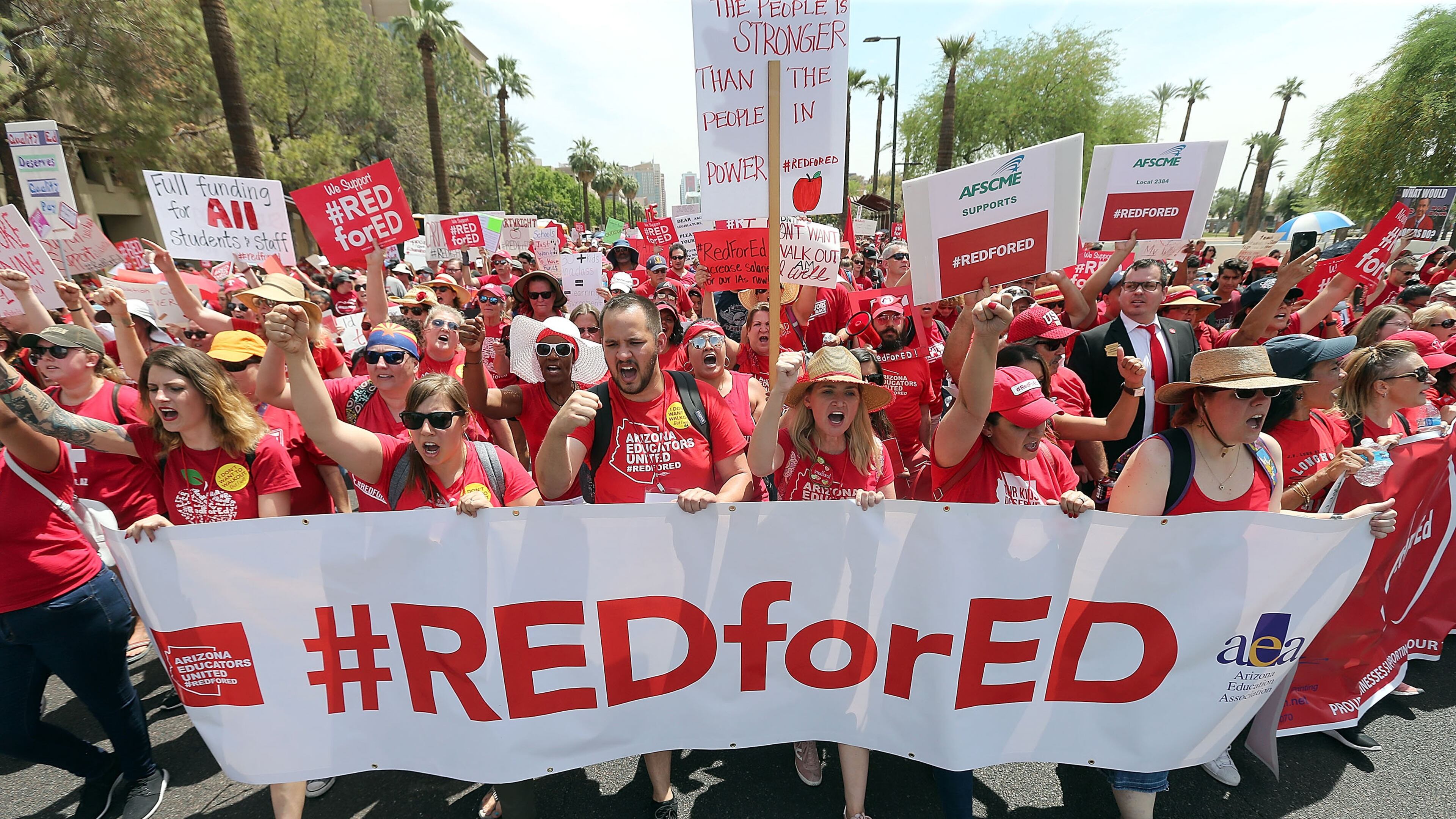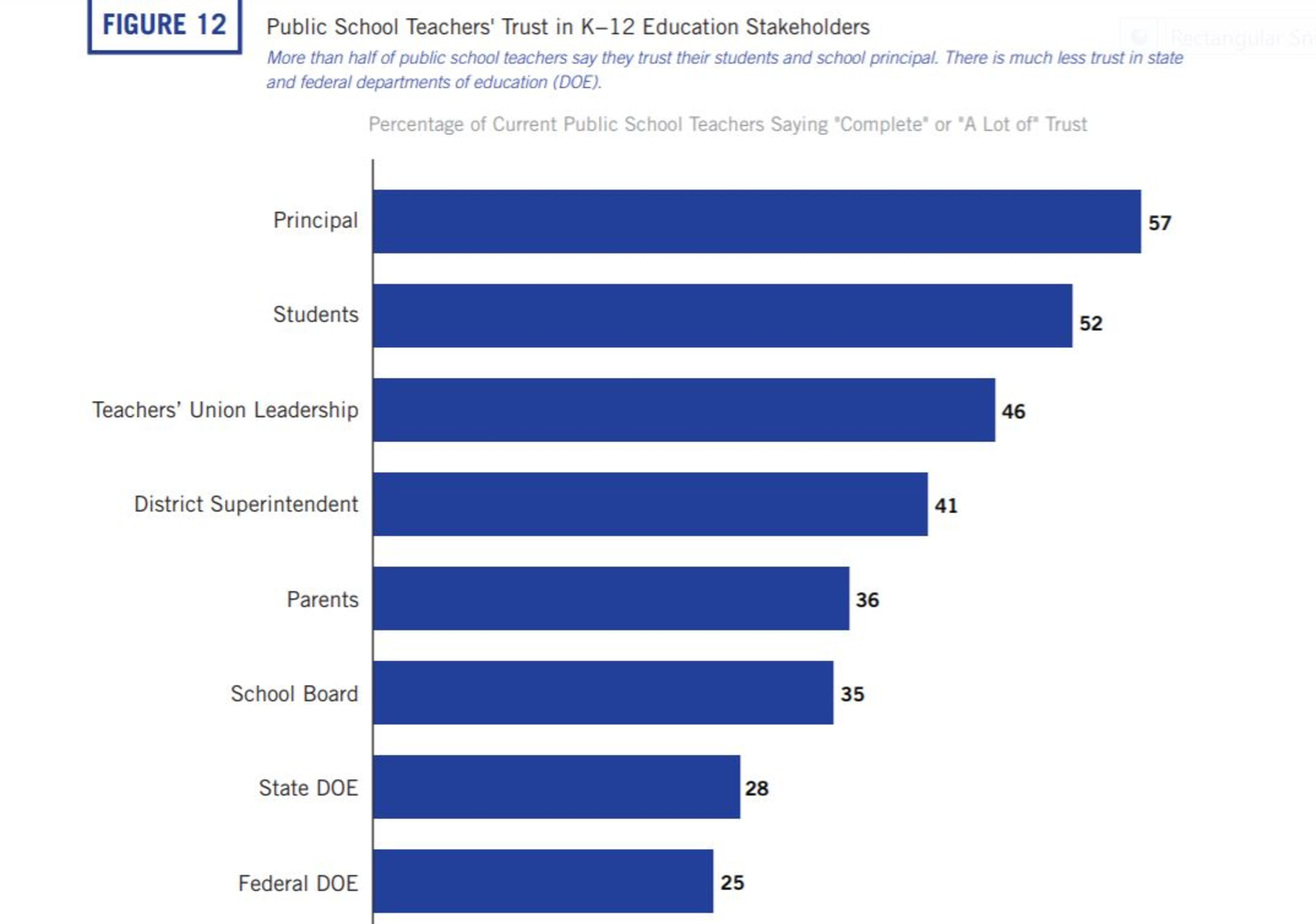Whom do teachers trust?

In a new survey on issues affecting k-12 education, public school teachers voiced more concerns about testing than parents and expressed more confidence in their principals and students than in union leaders or government agencies.
The 2018 Schooling in America Survey sponsored by EdChoice found:
- Public school teachers as a group appear to have reservations about their jobs and the profession. They are far less likely to recommend their profession than active duty military personnel.
- Teachers trust parents less than students and principals. Majorities of teachers say they trust their students and principals, but they are less inclined to trust their students' parents and public officials or government agencies.
- They also have greater concerns about standardized testing than parents and the general public. More than half think too much time is spent on standardized testing, compared to roughly one-third of parents and the general public.
- Public school teachers hold their local school districts most responsible for walkout, protests, and strikes. A slightly smaller majority say state government is to blame. On the other hand, survey responses suggest the public faults teachers' unions more than any other stakeholder.
The Schooling in America survey has been conducted for six years, but this marked the first time results from an online survey of current public school teachers were featured.
The survey asked teachers how much trust they have in the stakeholders in education. Fifty-seven percent of teachers have “complete” or “a lot of” trust in their school’s principal. The number was slightly less for students -- 52 percent. Less than half of the teachers in the survey say they trust their teachers' union leadership (46%), superintendent (41%), or their students’ parents (36%). Governing and oversight institutions garner even less trust among teachers. Roughly one-third or less of teachers signal trust in their school board (35%), state department of education (28%), or the federal department of education (25%).

The survey notes:
Generally, the teachers who were younger, Millennial, or having at least a few years of experience were more likely to trust stakeholders than the overall teacher average. That was a fairly consistent comparative finding even when levels of trust were low. They have relatively higher levels of trust in their students, students' parents, school principal, and teachers' union, compared to the overall teacher average. K–5 teachers gave similar above-average trust ratings, except for teachers' union leadership. Teachers who were in urban schools, or who were male, tended to be more trusting of governing bodies like the local school boards and state or federal government education agencies.
According to the survey, a majority of public school teachers feel too much time goes to standardized testing.
More than half of teachers (52%) offered this view, which is significantly higher than school parents (36%) and the general public (36%) saying the same. Parents and teachers clearly have differences of opinion on this question. Nearly two out of three parents (64%) say the amount of time spent on testing is "too low" or "about right." Less than half of teachers (48%) give those responses. See Figure 16. The disconnect between teachers and parents may stem in part from perception, lack of information, or both of those things. We asked respondents to estimate the amount of time spent on standardized testing preparation and administration, and teachers were much more likely to say 11 or more school days (59%), which is higher than school parent and general population average responses (50% and 46%, respectively). Nearly two out of five teachers said 16 or more school days—the equivalent of more than three full weeks of school.

